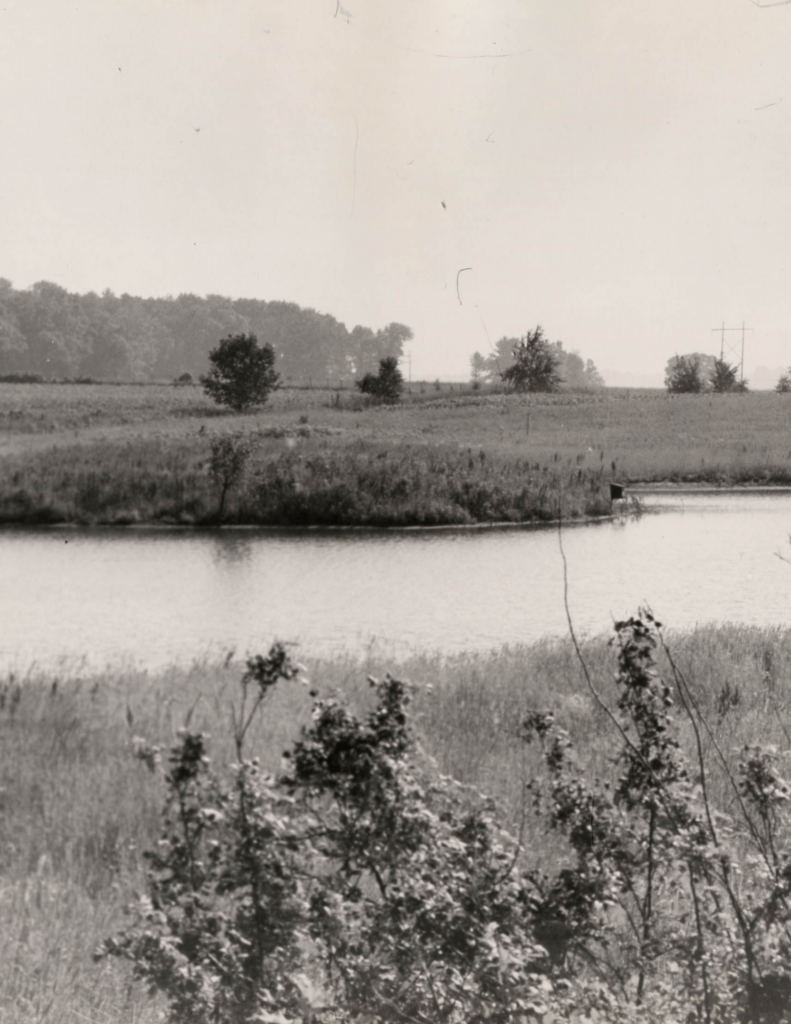
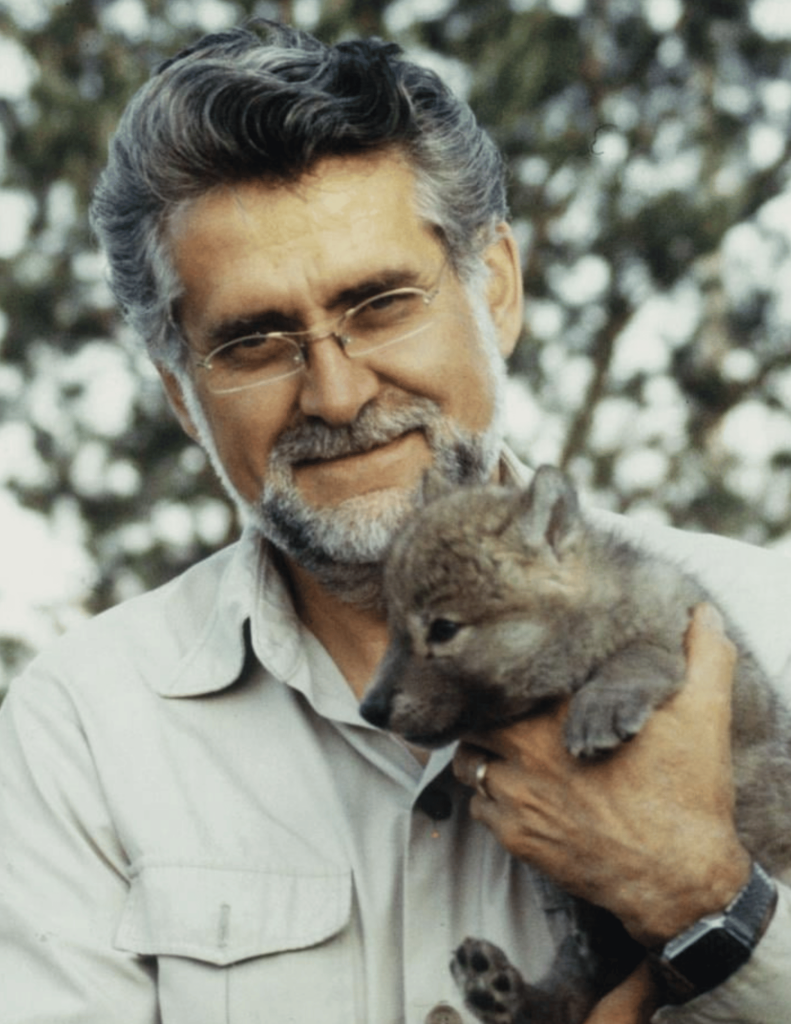
Wolf Park was originally founded in 1972, by Dr. Erich Klinghammer, as the North American Wildlife Park Foundation, with a pioneering mission to study wolf pack dynamics and social behavior, particularly in captive settings. At the time, studying wolves was extremely challenging due to their elusive nature and the difficulties of observing them in the wild for extended periods. Recognizing this gap, Dr. Klinghammer brought two wolves, Koko and Cassie, to his property from the Brookfield Zoo in Chicago, Illinois, as the foundation of his research into ethology, the study of animal behavior.
Wolf Park quickly became a trailblazer in the field, developing innovative techniques for socializing captive wolves and documenting their behaviors. One of its most significant contributions to wolf science is the Wolf Ethogram, a comprehensive catalog of wolf behaviors and vocalizations that remains a foundational tool in wolf studies worldwide.
Since its early days, Wolf Park has remained dedicated to fostering understanding, respect, and coexistence between humans and wildlife through its groundbreaking work and educational efforts.
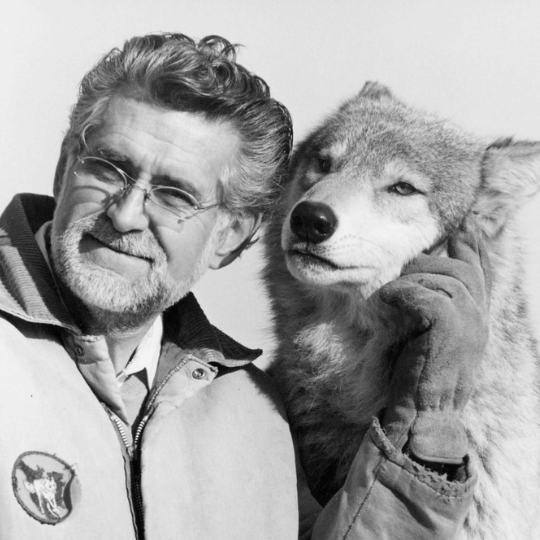
Erich was born in Kassel, Germany, immigrating to the United States in 1951, eventually earning citizenship through his service in the U.S. Army. Following his military service, he pursued higher education at the University of Chicago, earning a Bachelor of Arts in 1958. Initially studying bird imprinting under renowned animal behaviorist Eckhard Hess, Dr. Klinghammer discovered he was allergic to birds and shifted his focus to gray wolves, which became the centerpiece of his groundbreaking research.
In 1962, Dr. Klinghammer earned his Ph.D. and began lecturing on ethology and animal psychology, first at the University of Chicago and later at Purdue University, when he joined the Department of Psychological Sciences in 1968, where he continued to teach until May of 1995. He was also a member of the Animal Behavior Society, the American Association of Zoological Parks and Aquariums and several other professional organizations.
His passion for understanding wolves extended beyond academia. Under his leadership, Wolf Park became a hub for education and conservation advocacy.


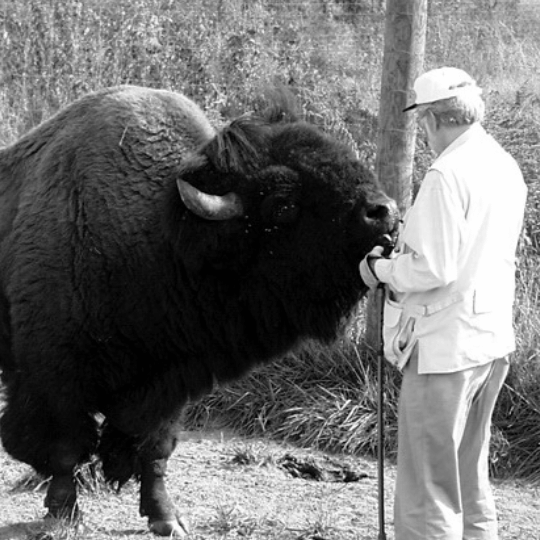
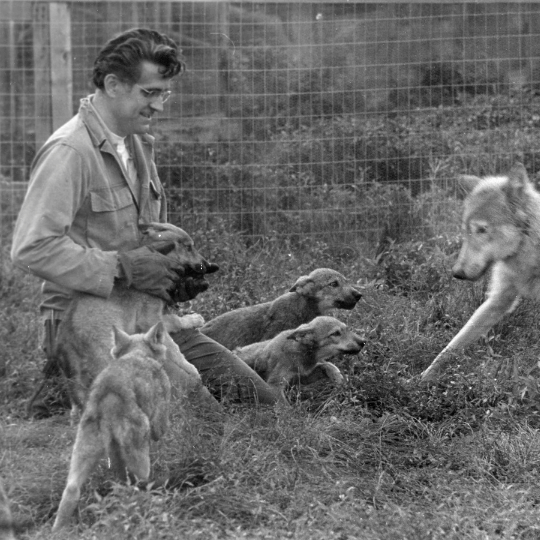
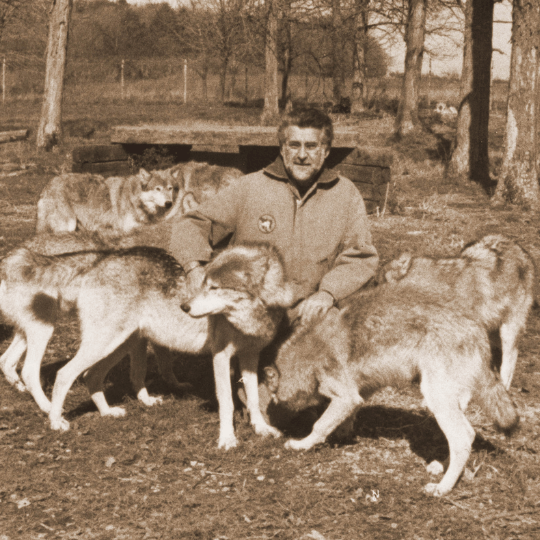
As Wolf Park expanded, so did its influence on global wolf conservation and research. Many notable biologists and conservationists, such as Doug Smith of the Yellowstone Wolf Project and Roger Palmer, founder of the UK Wolf Conservation Trust, began their careers at Wolf Park.
It was Dr. Klinghammer’s hope and dream that the American public could be educated about the invaluable treasure they have in their remaining wilderness and that they would cherish and protect wolves and wild spaces.
His dedication to fostering understanding, respect, and coexistence between humans and wildlife continues to inspire generations of conservationists, ensuring that his vision for a harmonious relationship with nature lives on through the work of Wolf Park.



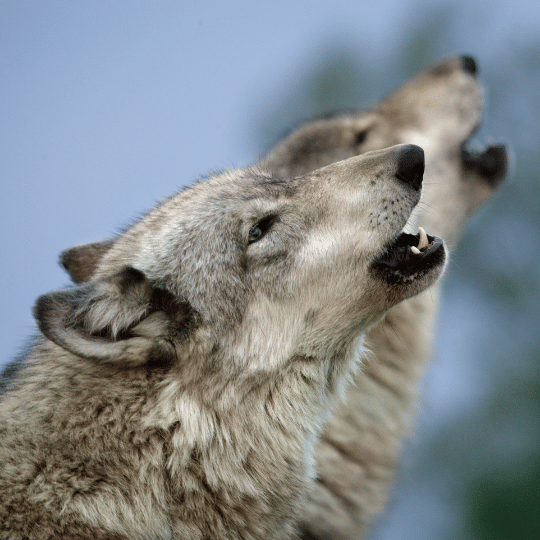
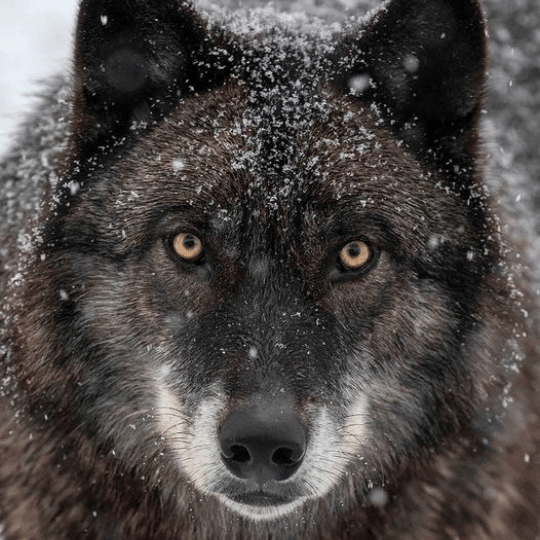
Today, Wolf Park operates on over 100 acres of rewilded farmland, providing a permanent home to wolves, bison, foxes, and other native species while advancing its mission of education and conservation through hands-on learning and scientific inquiry.
Looking ahead, Wolf Park remains committed to expanding its impact, fostering a deeper connection between people and wildlife, and serving as a beacon for conservation innovation and education.
With its unique blend of research, storytelling, and community engagement, Wolf Park is poised to inspire future generations to protect and preserve the natural world for years to come.
Thank you, Erich, for laying the foundation for the meaningful work we carry on today.